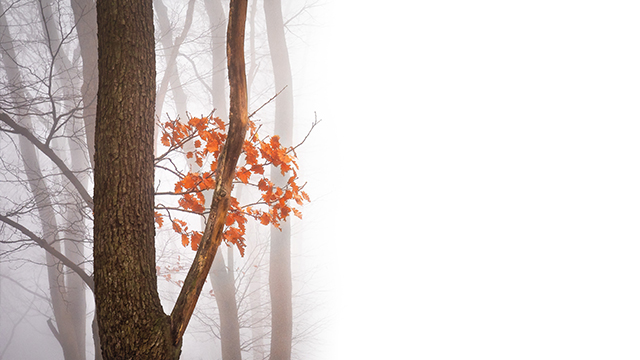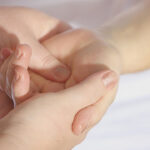IMMUNITY FROM A TCM PERSPECTIVE
Immunity can be understood as the sum of all defence mechanisms that enable our system to protect itself against pathogenic influences. But how can we specifically promote and strengthen this mechanism, which is so important for our health? Traditional Chinese medicine provides valuable approaches in this regard.
Who hasn’t experienced this? Usually from mid-September, the first wave of infections rolls through the country, whether coughs, colds or other viral illnesses. The days are now much shorter. Temperatures are dropping. Summer and the intense heat are a thing of the past. TCM takes a rather pragmatic view of this: if the first external cold meets existing internal cold, the end result is a cold. And this can continue throughout autumn and winter. This is easy to counteract. But what is internal cold? How does this phenomenon come about? And what does it have to do with our immune system? TCM supplements Western knowledge about our immune system with exciting impulses that have proven very effective in practice. Both preventively and in acute cases. However, we first need to familiarise ourselves with a few terms and ideas.
The mysterious substance Qi
If you study Asian healing methods or body arts, you will inevitably stumble across the term qi. Qi is commonly translated as energy or life energy. However, Qi has many faces and is not as abstract and mystical as one might assume. On the one hand, the term qi is often used to describe dynamics and connections in our body. When TCM talks about immunity, it refers to Wei Qi, also known as defence energy. The term Wei Qi encompasses several processes that help to keep the body healthy and vital – i.e. strong in defence. These include aspects of nutrition, aspects of stress management and aspects of exercise.
In our culture, we would use the term vitality in this context. The word vitality has its roots in Latin and means ‘sustaining life’, ‘having vitality’ or ‘giving vitality’. In medicine, vitality refers to a person’s overall physical and mental system performance and means exactly the same thing as TCM: How well is the human body working? How well do the organs function? How well does the nervous system function? How well do the muscles function? But also: How satisfactory is the emotional state? What about general well-being? All these factors have an influence on our vitality, on our Qi and, of course, on our immunity. On the other hand, the term Qi is used to describe how certain impulses affect our organism. So let’s jump straight to the topic of nutrition, which is the most important pillar for building up Wei Qi…
The thermal Qi of food
There is a significant difference between the Western and Eastern view of food. In the Western approach, the focus is on the quantitative breakdown of individual ingredients. The questions are: What is in it? How much of it is in it? The result: exact values in terms of carbohydrate, fat and protein content. Exact values in terms of vitamins, trace elements, minerals or secondary plant substances. Particularly positive effects of individual ingredients are emphasised and placed at the centre of attention.
Think of the much promoted vitamin C in tropical fruits, especially in relation to our immune system. The consumption of vitamin C in infectious times is therefore high. Often through orange juice and consortia. However, this has no real preventative effect on colds. In fact, the opposite is often the case. This is because individual effects only say something about the sum of the overall effect to a limited extent. And in the case of tropical fruits, this is thermally cold according to TCM. This means that they have a cooling and refreshing effect on the body. This is also their function. According to TCM, nature is the most sensible pharmacy in the world: at any time of year, it provides us with predominantly those foods and herbs that help us to adapt to the challenges of our environment. Southern fruits thrive in predominantly warm and hot countries. They help the people living there to balance out the climatic influences. Because they are thermally cold. In TCM, we speak of the thermal effect or thermal energy that is present in every food and has a direct effect on the body’s thermoregulation. Thermal energy is divided into five categories in TCM: There are cold, refreshing, neutral, warming and hot foods.
In general, it can be said that more cooling foods thrive in hot countries or seasons and more warming foods thrive in cold countries or seasons. In countries with a short or non-existent growing season, animal products take centre stage. These have a warming character as well as a high energy content and are usually heated further during preparation, which further increases their thermal character. If oranges are the swimming trunks of food, then the grilled and strongly flavoured piece of meat is the down jacket. You should choose these edible garments in the same way as you do with your everyday clothes. There is a summer wardrobe. There is a winter wardrobe. TCM teaches us not to confuse the two…
Inner cold
Back to the start. We’re in late summer and the first cold snap is making its debut. Who would go outside in their swimming trunks? Would we really be surprised if we caught a cold? If we nevertheless revert to our summer wardrobe when the temperatures are lower, a similar effect occurs. We catch a cold. But directly in the digestive tract. As a result, internal cold can build up in the digestive tract. Just like in a house that is simply not heated. This will also have little to counteract the external cold…
Our summer diet is perfectly suited to the requirements of the season. Lots of fruit, lots of salad, lots of cold drinks and the occasional ice cream – why not! But we need to start changing this cooling diet in good time if we want to build up vital immunity for autumn. Because once the cold is in your system, it’s not so easy to banish. The popular basis for the O-O cold, from October to Easter.
And the bottom line is that this knowledge is and always has been part of our domestic experience. A juicy apple in summer is wonderfully refreshing. In winter, however, we prefer to prepare the same apple as a baked apple, in the oven, with lots of warming spices, simply to balance out the cooling effect. If the sun is beating down from the sky, white wine with mineral water is a marvellous thirst quencher. If the clammy fingers of winter come knocking on the door, a mulled wine turns on the inner heating. And if we really do catch a cold, we like to drink teas that make us sweat profusely in order to drive the cold out of our bodies quickly. East and West are based on the same empirical observations. How can we utilise these correlations to specifically strengthen our Wei Qi defence energy?
Three organs, one goal
In TCM, three organs are primarily responsible for the strength of our immune system: the spleen, kidney and lungs, whereby it should be noted that in TCM the term spleen is synonymous with the entire digestive tract, which forms the basis of the defence system. It can be seen as the central oven in the house of our body. If it functions well, it produces sufficient energy and heat and energy and heat are the best protection against adverse external influences. If it is not working well, there are signs of this, such as cold zones in the body. These include the feet, hands, buttocks, the tip of the nose and general cold aversion. Cold noses prefer to sleep with socks or thick blankets. And the lack of energy can manifest itself in tiredness, listlessness or a lack of willpower. In TCM, these are all signs that the spleen furnace is functioning sub-optimally. This is mainly due to the fuel.
A general recommendation can be made: Avoid cold and cool foods from mid-August. This is because the first harbingers of autumn can make themselves felt from mid-August. From time to time there is already dew on the grass. The air becomes clearer. In other words: time to get the oven going. However, it’s not just the classic summer vegetables that are thermally cool, but also dairy products such as yoghurt, curd cheese, soya products and frozen foods. Because it’s also about the art of preparation. Frozen food from the microwave is not good for the oven. It can be compared to an electric radiator and a crackling fire. Both give off heat. But only one of them is really lively and penetrating
Therefore: the deeper we go into autumn, the more powerful the cooking can be. Long-cooked soups with lots of root vegetables. Dishes from the oven. Meat and fish are also popular. All combined with warming or hot spices. All in all, dishes that really heat us up and leave a feeling of cosy warmth in our stomach and body. A mango and mozzarella salad doesn’t do that, even if it promises lots of vitamins. In general: avoid raw food. Sauerkraut can do much more. Most types of cabbage are better sources of micronutrients than tropical fruit. As far as breakfast is concerned, this should of course also be warm. Why not a long simmering porridge with dried fruit, roasted nuts and cinnamon? The spleen likes this in winter. It helps it to produce warmth and energy. So one thing is clear: only eat exotic foods now and again. Exotic food is damp, cold wood that you throw into the oven. Of course, this doesn’t have to be manic. But at least consistent. After all, we don’t switch off the central heating during the heating period and then wonder why it gets cold.
Rest and exercise
And what about the kidneys? They are sensitive to stress in both the East and the West. Ultimately, TCM is more of an everyday science that is orientated towards the cycle of nature. Both in terms of what we eat and our general lifestyle, and in winter nature shifts down a gear, while we humans often experience the greatest stress in December, during the contemplative period that actually invites us to go inwards with our senses and become calmer. By taking targeted breaks, getting more sleep and consciously avoiding stress, you can maintain your vitality during this challenging time of year and strengthen your immunity at the same time.
However, a little exercise is still allowed, which brings us to the function of the lungs. Regular walks in the fresh air are better than excessive sport or excessive television viewing. It’s all about gentle exercise, because in the cold season it’s all about conscious energy management in order to maintain a small surplus that can be released to the defence energy Wei Qi.
Conscious stress management and gentle exercise are neither new nor complex findings in relation to our immunity, but are nevertheless implemented with far too little attention. The greatest contribution of TCM is therefore certainly in relation to a more conscious approach to our diet, paying attention to thermal energy and the preparation of our food. This is probably the biggest lever we have at our disposal for staying healthy and energised through challenging times. Bon appétit!






